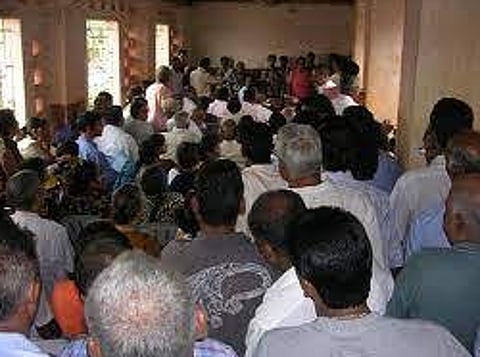

Village panchayats skipping calling for gram sabha meetings, forcing the block development officer to send notices to them to schedule such a meeting, is a reflection of how weak the Panchayati Raj system in Goa has now become. Gram sabhas are an important component of the panchayat system as it is at these meeting that the villagers get the only opportunity to actively participate in the planning and decision-making process for the village, demand answers from the elected representatives and even at times force reversal of decisions that may be harmful for the village. At all other times, it is the panchayat body that takes the decisions that are then imposed upon the people as a fait accompli.
It is this precise reason – questioning by the people on decisions taken – that would be leading to the elected body postponing gram sabha meetings or even not holding them. One reason for not calling a gram sabha meeting is that the elected body of the panchayat may be afraid of facing the people over issues that are controversial in nature, another could be pure unconcern with the laws of the land. Ironically, while the Directorate of Panchayat can ask a village body to hold a gram sabha, it cannot penalise the body for not holding it as no such penal provisions are provided in the law. It would require an amendment to the Act for imposing a penalty on defaulting panchayats. In the absence of such a provision in the Act, the government should consider other means to make panchayat bodies hold gram sabhas.
This is not the first instance of panchayats not holding gram sabha meetings as mandated in the Act. This is a recurring issue for which a solution needs to be found. Under the Goa Panchayat Raj Act, four regular gram sabhas in a calendar year must be held and the panchayat budget must be approved at the sabha. Last year due to the COVID-19 pandemic lockdown many panchayats skipped the gram sabha meetings, though officially they were not given any exemption from holding the meets. If last year it was the pandemic lockdowns that came in the way, what is the reason this year?
For local governance to grow and development plans to be of the people and for the people, meetings of the gram sabha are very necessary, as the sabha constitutes the core of the Panchayati Raj system. Take away the powers or dilute the functions and what remains is merely a shell of what was envisaged by the Panchayati Raj Act. How will the panchayat body learn of the needs of the people unless this is brought up at a common meeting and discussed thoroughly? That is what the gram sabha does – get all the voices of the people under one roof for more democratic decision making. Power to the people will remain a mere slogan if gram sabhas are not held as envisaged and demanded by the Act.
Beyond the issue of gram sabhas, panchayats in Goa are not empowered in various subjects, making them mere bodies for issuing certificates of a varied nature with minimum decision-taking powers. If governance at the grassroots level has to improve and people empowered, then devolution of powers is an absolute necessity. Asking panchayats to hold gram sabhas, but limiting their powers will not empower the grassroots bodies. The system requires a major revamp and this can come only if there is political will to bestow more powers to the village bodies. As long as the politicians at the State level remain threatened by the panchayats and the political growth of the panchas, the latter will not be given the powers they deserve.